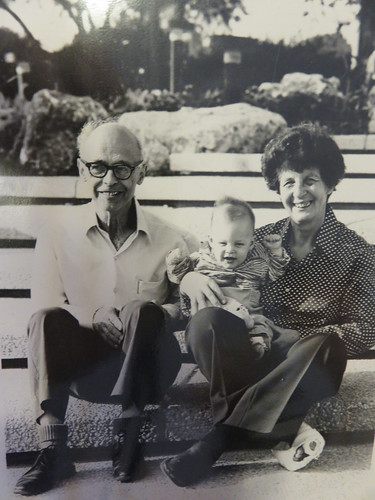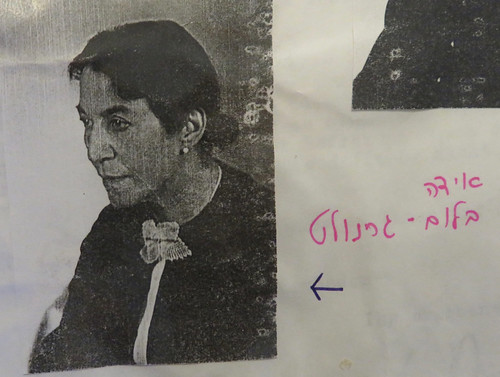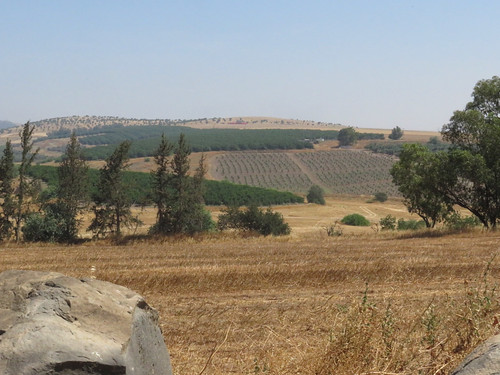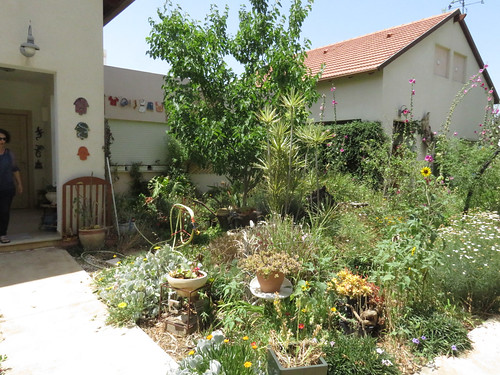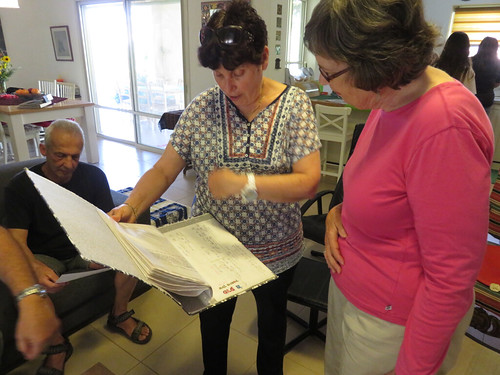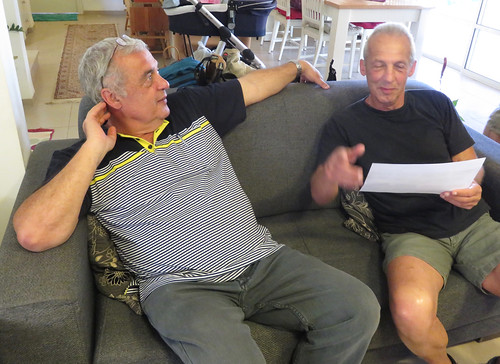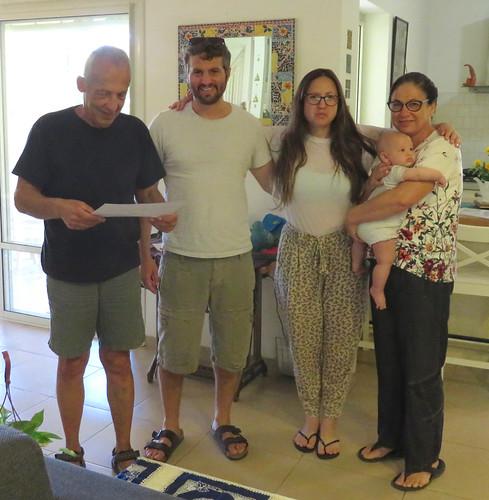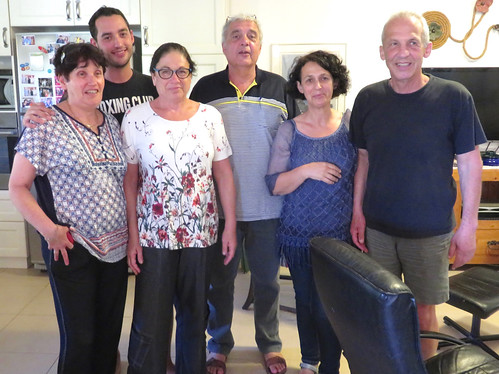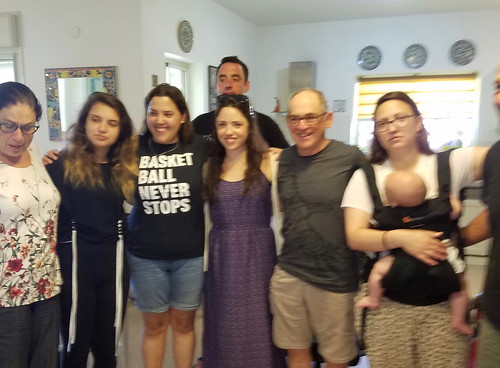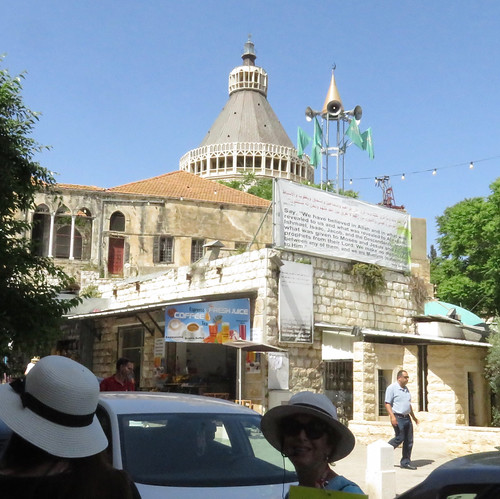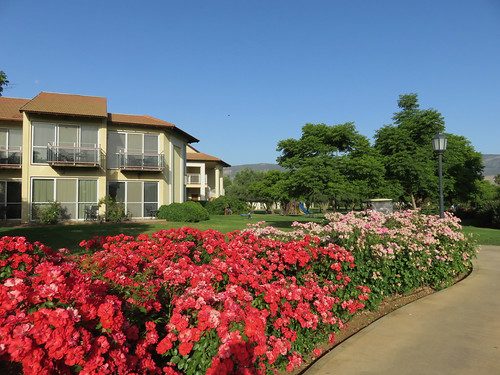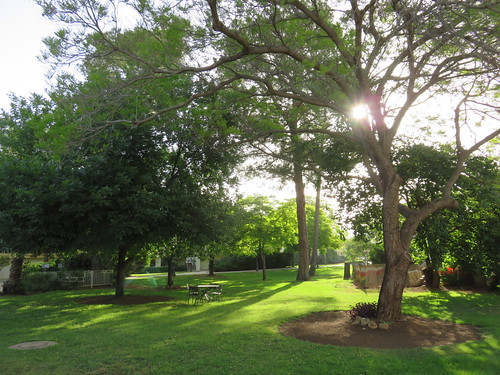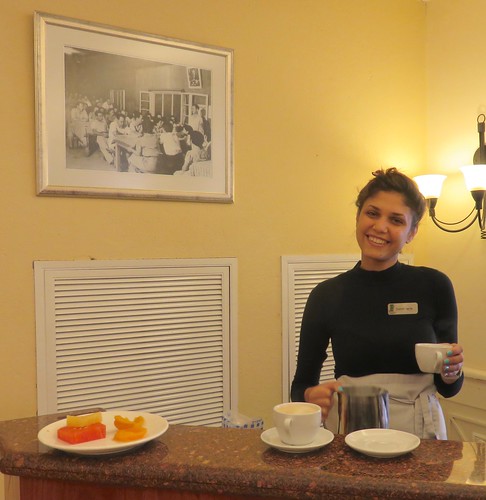Israel 2017–Day 4
After the tour bus heads north without us, we are picked up at the hotel by Yair Caro. Before we left the States, Jan searched the internet for people we might meet in Israel and discovered that he was a second cousin of mine whose brother Gustave we had met in Grenoble in 1969 and whose grandmother, Ida Blum, was the sister of my grandfather Adolf Gruenwald. Ruggedly handsome, deep voiced and fluent in English and authoritative in manner, he drives through the Arab part of the old city, where elegant but dilapidated buildings are now being renovated, gentrified, and repurposed by the municipality.
On a new freeway, we pass through a vast petrochemical complex producing a brown cloud spreading inland. Caro points out one of the campuses of the University of Haifa, where he teaches mathematics and education. I had googled him earlier and learned that he’s published 150 papers in the theoretical field of “combinatorics.” We stop briefly at the mound of Megiddo, a seventeen-layer architectural dig also known as Amageddon.
We arrive at Kibbutz Geva, the home Caro’s mother Rachel found in 1938 after her own heroic escape from the Nazis who had murdered her parents and grandparents, including Ida Blum, the sister of my maternal grandfather.
He points out cowsheds, horse corrals, and factories where the industrial control mechanisms invented by the kibbutz are produced. In the distance we see the kibbutz’s cropland, vineyards, and orchards. He refers to the vista as “Toscana.”
Shaded by large cypresses next to the road lies the cemetery where his parents are buried, a favorite place, he says, where he’s now headed. On the opposite side of the road teenagers hang out in another shady grove. Across a deep ravine, he points out a village organized as a cooperative Moshave rather than a communally owned kibbutz, the home of his brother. We walk by a group of semidetached residences surrounded by flower gardens, to his house and are welcomed with food and drink by Rachel, his wife.
She brings out scrapbooks of genealogical charts and pictures of relatives that trace our blood ties.
More people of all ages start arriving: Yair’s brother and his wife, their kids and grandkids, Yair and Rachel’s son and daughter now living in Berlin but here for a visit, and his sister. It’s hard for me to keep track of who’s who, but I bask in the feeling of being surrounded by family, since I grew up without any aunts or uncles or cousins in the United States.
After the younger folks go their various ways, the discussion turns to life on the Kibbutz. We learn that Yair is the Mayor of Geva. He speaks with sadness about his difficulties guiding the older members in the direction of privatization that’s necessary for the community to survive–a process going forward in most kibbutzim for better and for worse. When he learns that Jan has been Mayor of San Luis Obispo, our home town, he asks about the political currents there and finds it hard to believe that she loved the job.
On the drive to Nazareth where we’ll rejoin our tour group, we learn that Yair was President of his University and is now relieved of the onerous duty of having to crawl on his knees and beg for money. Stuck in the city’s chaotic traffic, he says, “Now you see what it’s like in an Arab City.”
After another goodbye Jan and I wander in the heat and press of crowds of pilgrims searching for the entrance of the Basilica of the Annunciation. The building was constructed by the Catholic Church in the 20th century amidst ongoing territorial rivalry among Jews, Muslims and various Christian factions. It’s mercifully cool inside, but the massive, fortress-like structure leaves me cold. On the way back to the bus, at the site of a small mosque adjacent to the Basilica, Gabi points out a sign with a quotation from the Koran that recently replaced another much more hostile and provocative passage.
A bedraggled beggar mingles with our group, one hand extended and the other pulling up his pant leg to reveal what looks like an immense running sore.
A short bus ride takes us to our next lodging, Kibbutz Kvar Blum, located in the Hula Valley, a lush green paradise of nature preserves, orchards and cropland situated in “the finger” extending north between the mountains of Lebanon to the west and the Golan Heights, annexed from Syria, to the east. This is one of the most prosperous of Kibbutzim. In addition to a large international business in drip irrigation devices and extensive agricultural production, Kvar Blum runs a five-star luxury resort named “Pastoral.”
We walk through the manicured gardens leading to our palatial room. I swim in the Olympic sized pool, graced with bar and bikini-clad guests. In the lavish dining room, the walls are decorated with black and white photographs of the original settlers eating around stark tables after their hard day’s work. I wonder how they would regard its present stage of evolution.

